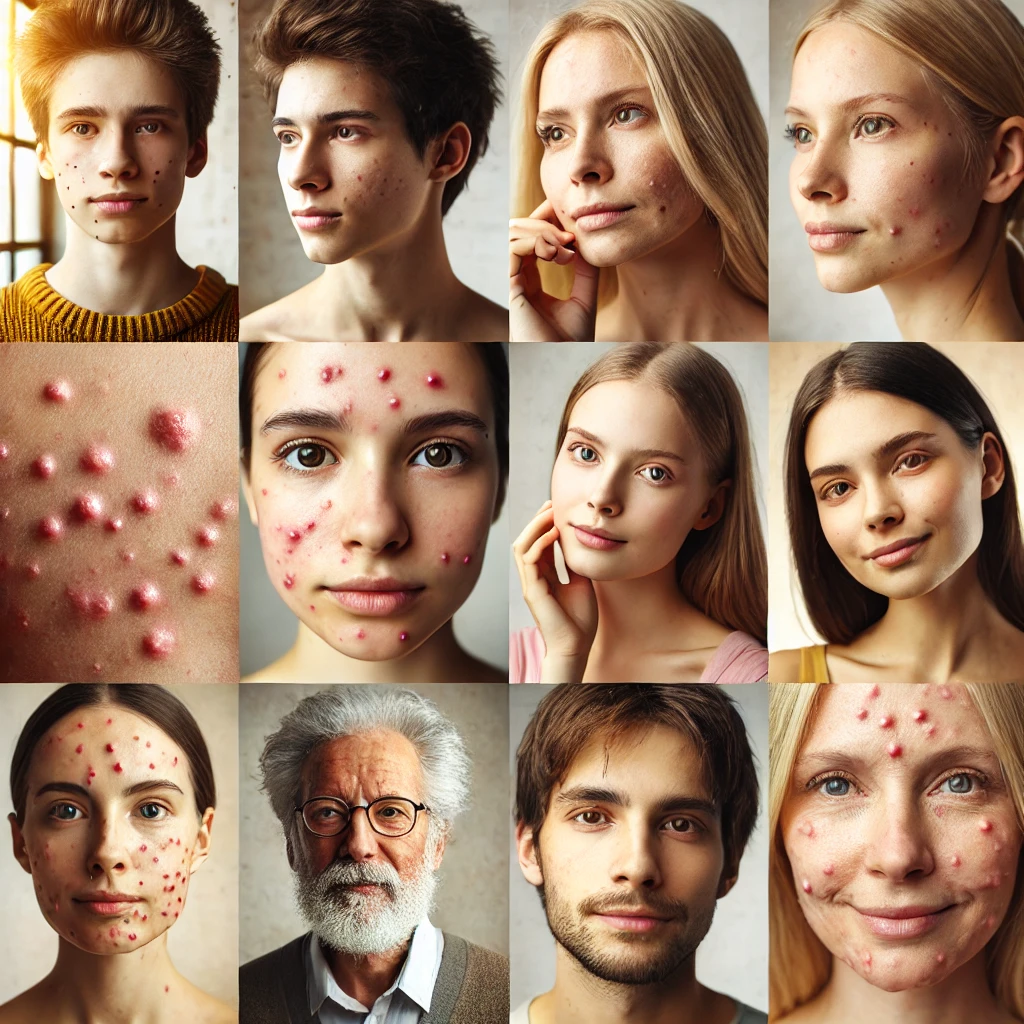Acne Is Not Just a Teenage Issue
Understanding Why Acne Persists Beyond Adolescence
Adult Acne Solutions: Many people believe that acne is a problem limited to teenagers, but that’s far from the truth. Acne can affect adults well into their 20s, 30s, and even 40s. Hormonal fluctuations, stress, diet, and skincare habits all play a role in adult acne. Understanding these factors can help in managing and preventing breakouts effectively.
What Causes Acne?
Acne is primarily caused by the overproduction of oil (sebum) by sebaceous glands, clogged hair follicles, bacteria (particularly Cutibacterium acnes), and inflammation. During teenage years, hormonal fluctuations, especially increased androgen levels, stimulate sebum production, leading to clogged pores and breakouts. This is why acne is most common during puberty. In adults, acne can be triggered by hormonal changes related to menstrual cycles, pregnancy, or conditions like polycystic ovary syndrome (PCOS). Stress, which increases cortisol levels, can also exacerbate acne in both teens and adults. Additionally, lifestyle factors such as diet, skincare products, and environmental pollutants can contribute to clogged pores and inflammation, making acne a persistent issue for some individuals beyond their teenage years.
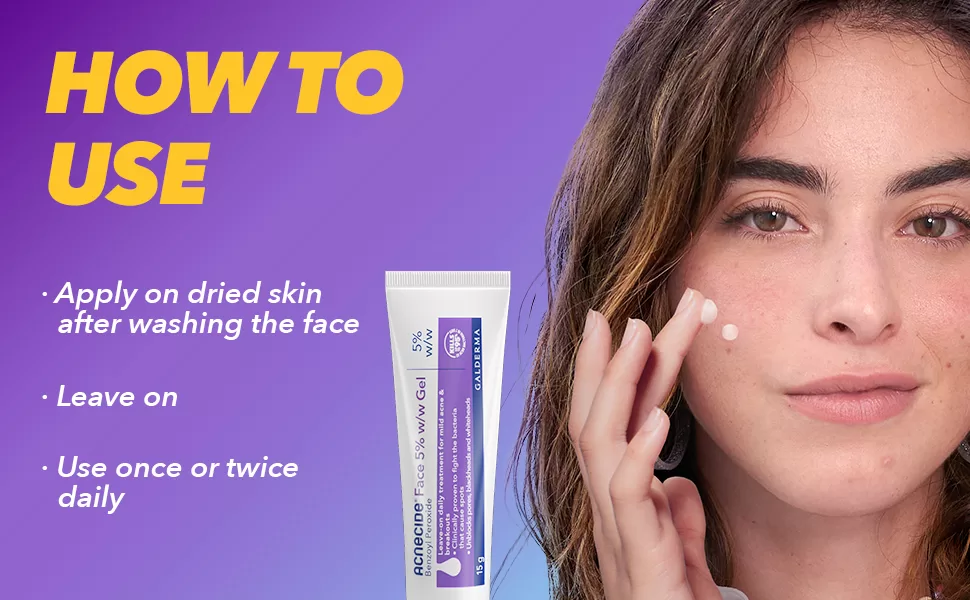
Is Adult Acne Different from Teenage Acne?
Yes, adult acne is different from teenage acne in several ways, including its causes, location on the face, and treatment options.
1. Location of Breakouts
Teenage acne usually appears in the T-zone (forehead, nose, and chin) due to high oil production in these areas. In contrast, adult acne tends to develop on the lower face, especially around the jawline, chin, and neck. These areas are more influenced by hormonal fluctuations.
2. Causes of Acne at Different Ages
- Teenage Acne: Primarily caused by hormonal surges during puberty that increase sebum (oil) production, leading to clogged pores and breakouts.
- Adult Acne: Often triggered by chronic stress, hormonal changes (menstruation, pregnancy, menopause), diet, medication, and improper skincare habits. Some adults also experience acne due to underlying conditions like Polycystic Ovary Syndrome (PCOS).
3. Type of Acne Lesions
- Teen Acne: More likely to have blackheads, whiteheads, and occasional cystic acne due to excess oil production.
- Adult Acne: Often deeper, more inflammatory, and cystic, which means breakouts last longer and can leave scars more easily.
4. Skin Type Differences
Teenagers generally have oily skin, which makes acne more frequent but also allows for faster healing. Adults, however, often have drier or combination skin, making acne treatment more challenging. Harsh treatments can cause irritation, so adult skincare routines should be more hydrating and gentle.
5. Treatment Approaches
- Teenage Acne: Typically responds well to over-the-counter treatments containing benzoyl peroxide, salicylic acid, and retinoids.
- Adult Acne: Often requires hormonal treatments (such as birth control or spironolactone), gentler skincare, and lifestyle changes (stress management, diet adjustments, etc.). Prescription retinoids or professional treatments like chemical peels may also be necessary for stubborn acne.
6. Post-Acne Scarring
Since adult skin takes longer to heal, post-inflammatory hyperpigmentation (PIH) and scars are more common. Teenagers may experience breakouts more frequently, but their skin regenerates faster, reducing long-term marks.
Key Takeaway
While teenage and adult acne share some similarities, adult acne is often more persistent, inflammatory, and hormonally driven. A different approach to treatment is required, focusing on gentle, long-term skincare, stress reduction, and hormonal balance rather than just oil control.
Common Causes of Adult Acne
1. Hormonal Imbalances and Acne
Hormonal acne is one of the most common types of adult acne. Fluctuations in estrogen, progesterone, and testosterone levels—especially during menstruation, pregnancy, and menopause—can trigger breakouts. Polycystic ovary syndrome (PCOS) is another major contributor to adult hormonal acne.
2. Stress and Its Impact on Skin
Chronic stress increases cortisol levels, which can overstimulate oil glands and lead to breakouts. Managing stress through mindfulness, exercise, and proper sleep can reduce acne flare-ups.
3. Diet and Acne: What You Eat Matters
Certain foods, such as dairy and high-glycemic foods, have been linked to acne. Processed sugars can spike insulin levels, leading to increased sebum production. A balanced diet rich in antioxidants and omega-3 fatty acids can help keep skin clear.
4. Skincare Mistakes That Trigger Acne
Using harsh skincare products or neglecting proper cleansing routines can worsen acne. Many adults use anti-aging products that contain heavy oils, clogging pores. A gentle, non-comedogenic skincare routine is essential for acne-prone skin.
Effective Adult Acne Solutions
Choosing the Right Skincare Routine–Gentle Cleanser
What Should You Look for in a Cleanser? A Comprehensive Guide to Choosing the Right Gentle Cleanser
Choosing the right cleanser is one of the most important steps in any skincare routine. A good cleanser should effectively remove dirt, oil, and impurities without stripping the skin of its natural moisture or disrupting its barrier. However, with so many options available, it can be overwhelming to find the right one for your specific skin type and concerns. Here’s a detailed guide to help you navigate the process, including recommendations for different skin types, key ingredients to look for, and general advice to maintain skin health.
Skin Type Considerations
1. Dry Skin
- What to Look For: Dry skin lacks natural oils and can feel tight or flaky after cleansing. Look for a creamy, hydrating cleanser that contains moisturizing ingredients to replenish the skin’s moisture barrier.
- Recommended Ingredients:
- Hyaluronic Acid: Attracts and retains moisture in the skin.
- Ceramides: Help restore the skin’s natural barrier.
- Glycerin: A humectant that draws water into the skin.
- Product Type: Cream or milk-based cleansers are ideal for dry skin as they cleanse without over-drying.
2. Sensitive Skin
- What to Look For: Sensitive skin is prone to redness, irritation, and reactions to harsh ingredients. Opt for a fragrance-free, hypoallergenic cleanser with soothing properties.
- Recommended Ingredients:
- Oatmeal: Calms irritation and reduces redness.
- Aloe Vera: Soothes and hydrates sensitive skin.
- Chamomile Extract: Anti-inflammatory and gentle on the skin.
- Product Type: Cream or lotion cleansers are best for sensitive skin, as they are less likely to cause irritation.
3. Oily Skin
- What to Look For: Oily skin produces excess sebum, which can lead to clogged pores and breakouts. A gentle, foaming cleanser can help remove excess oil without over-drying.
- Recommended Ingredients:
- Salicylic Acid: A beta-hydroxy acid (BHA) that exfoliates inside pores, targeting blackheads and preventing breakouts.
- Niacinamide: Regulates oil production and minimizes pores.
- Tea Tree Oil: Natural antibacterial properties to combat acne-causing bacteria.
- Product Type: Gel or foaming cleansers are ideal for oily skin, as they provide a deep cleanse without leaving residue.
Key Ingredients and Their Benefits
1. Salicylic Acid
- Benefits: Salicylic acid is a beta-hydroxy acid (BHA) that penetrates deep into pores to dissolve oil and dead skin cells. It’s particularly effective for treating blackheads, whiteheads, and acne-prone skin.
- Best For: Oily and acne-prone skin types.
- How to Use: Use a cleanser with salicylic acid 2-3 times a week to avoid over-exfoliation.
2. Benzoyl Peroxide
- Benefits: Benzoyl peroxide is an antibacterial agent that kills acne-causing bacteria and reduces inflammation. It’s effective for treating inflammatory acne like pimples and cysts.
- Best For: Acne-prone and combination skin.
- How to Use: Start with a lower concentration (2.5% or 5%) to minimize irritation, and use it as directed by your dermatologist.
3. Hyaluronic Acid
- Benefits: Hyaluronic acid is a powerful humectant that attracts and retains moisture in the skin, making it ideal for dry and dehydrated skin.
- Best For: Dry, sensitive, and mature skin types.
- How to Use: Can be used daily in a hydrating cleanser to maintain skin’s moisture levels.
4. Ceramides
- Benefits: Ceramides are lipids that help restore the skin’s natural barrier, preventing moisture loss and protecting against environmental irritants.
- Best For: Dry, sensitive, and eczema-prone skin.
- How to Use: Look for cleansers with ceramides to support skin barrier health.
General Advice for Choosing a Cleanser
- Avoid Harsh Cleansers: Overly aggressive cleansers, especially those with sulfates (e.g., sodium lauryl sulfate), can strip the skin of its natural oils, leading to dryness, irritation, and a compromised skin barrier. This is particularly important if you’re using prescription topical treatments (e.g., retinoids, acne medications), as harsh cleansers can exacerbate sensitivity.
- pH-Balanced Formulas: Look for cleansers with a pH close to the skin’s natural pH (around 5.5). This helps maintain the skin’s acid mantle, which protects against bacteria and environmental stressors.
- Fragrance-Free Options: Fragrances can irritate sensitive skin and cause allergic reactions. Opt for fragrance-free cleansers, especially if you have sensitive or reactive skin.
- Patch Test New Products: Before fully incorporating a new cleanser into your routine, patch test it on a small area of your skin to ensure it doesn’t cause irritation or breakouts.
- Consider Your Routine: If you use heavy makeup or sunscreen, consider a double-cleansing method. Start with an oil-based cleanser to remove makeup and sunscreen, followed by a gentle water-based cleanser to clean the skin.
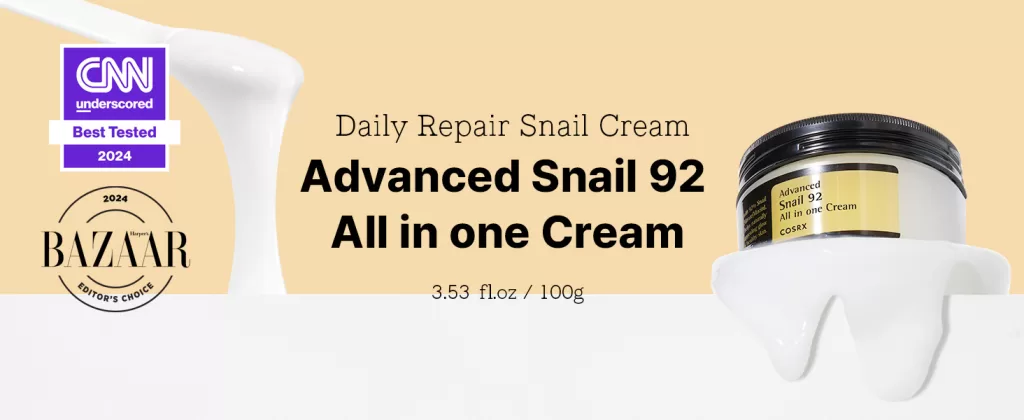
Cleanser Recommendations by Skin Type
1. For Dry Skin:
- CeraVe Hydrating Cleanser: Contains hyaluronic acid and ceramides to hydrate and restore the skin barrier.
- La Roche-Posay Toleriane Hydrating Gentle Cleanser: Soothing and non-stripping, ideal for dry, sensitive skin.
2. For Sensitive Skin:
- Aveeno Calm + Restore Nourishing Oat Cleanser: Formulated with oatmeal and calming ingredients to reduce redness and irritation.
- Vanicream Gentle Facial Cleanser: Fragrance-free and non-comedogenic, perfect for sensitive skin.
3. For Oily Skin:
- Neutrogena Oil-Free Acne Wash: Contains salicylic acid to target acne and prevent breakouts.
- Paula’s Choice Pore Normalizing Cleanser: A gentle foaming cleanser with niacinamide to regulate oil production.
Final Thoughts
A gentle cleanser is the foundation of a healthy skincare routine. By choosing a product tailored to your skin type and concerns, you can effectively cleanse your skin without compromising its health. Remember to avoid harsh ingredients, prioritize hydration, and always listen to your skin’s needs. If you’re unsure which cleanser is right for you, consult a dermatologist for personalized recommendations. With the right cleanser, you’ll be one step closer to achieving clear, balanced, and radiant skin.
Lightweight Moisturizer:
What Should You Look for in a Lightweight Moisturizer and Sunscreen? A Comprehensive Guide
After cleansing, the next essential steps in any skincare routine are moisturizing and applying sunscreen. These steps are crucial for maintaining skin health, preventing dehydration, and protecting against environmental damage. However, choosing the right products can be tricky, especially if you have specific skin concerns. Here’s a detailed guide to help you select the best lightweight moisturizer and sunscreen for your skin type and needs.
Lightweight Moisturizer: Keeping Skin Hydrated Without Clogging Pores
A lightweight moisturizer is ideal for providing hydration without feeling heavy or greasy on the skin. It’s especially important for those with oily, combination, or acne-prone skin, as heavier formulas can clog pores and lead to breakouts. Here’s what to look for:
Skin Type Considerations
- Oily Skin
- What to Look For: A non-comedogenic, oil-free moisturizer that hydrates without adding excess shine or clogging pores.
- Recommended Ingredients:
- Hyaluronic Acid: Lightweight and deeply hydrating.
- Niacinamide: Regulates oil production and minimizes pores.
- Dimethicone: A silicone-based ingredient that provides a smooth, matte finish.
- Product Type: Gel or water-based moisturizers are ideal for oily skin.
- Dry Skin
- What to Look For: A lightweight yet hydrating moisturizer that locks in moisture without feeling heavy.
- Recommended Ingredients:
- Ceramides: Restore the skin’s natural barrier.
- Squalane: Lightweight and mimics the skin’s natural oils.
- Glycerin: Draws moisture into the skin.
- Product Type: Light lotions or gel-cream hybrids work well for dry skin.
- Combination Skin
- What to Look For: A moisturizer that balances hydration in dry areas while controlling oil in the T-zone.
- Recommended Ingredients:
- Hyaluronic Acid: Provides lightweight hydration.
- Green Tea Extract: Antioxidant-rich and helps regulate sebum production.
- Product Type: Gel-based or lightweight lotions are ideal.
- Sensitive Skin
- What to Look For: A fragrance-free, hypoallergenic moisturizer with soothing ingredients to prevent irritation.
- Recommended Ingredients:
- Oatmeal: Calms redness and irritation.
- Aloe Vera: Soothes and hydrates sensitive skin.
- Allantoin: Promotes healing and reduces irritation.
- Product Type: Light creams or gel-based formulas are best.
Key Ingredients and Their Benefits
- Hyaluronic Acid
- Benefits: Attracts and retains moisture in the skin, providing hydration without heaviness.
- Best For: All skin types, especially oily and combination skin.
- Niacinamide
- Benefits: Regulates oil production, reduces redness, and improves the skin barrier.
- Best For: Oily, combination, and acne-prone skin.
- Ceramides
- Benefits: Restore the skin’s natural barrier, preventing moisture loss and irritation.
- Best For: Dry and sensitive skin.
- Squalane
- Benefits: Lightweight and non-greasy, it mimics the skin’s natural oils to provide hydration.
- Best For: All skin types, especially dry and sensitive skin.
General Advice for Choosing a Lightweight Moisturizer
- Non-Comedogenic: Ensures the product won’t clog pores, making it ideal for acne-prone skin.
- Fragrance-Free: Reduces the risk of irritation, especially for sensitive skin.
- Layerable: Should work well under sunscreen and makeup without pilling.
- pH-Balanced: Helps maintain the skin’s natural barrier.
Lightweight Moisturizer Recommendations
- Oily Skin: Neutrogena Hydro Boost Water Gel (with hyaluronic acid).
- Dry Skin: First Aid Beauty Ultra Repair Face Moisturizer (with colloidal oatmeal and ceramides).
- Combination Skin: Clinique Dramatically Different Moisturizing Gel.
- Sensitive Skin: La Roche-Posay Toleriane Ultra Light Moisturizer.
- Adult Acne Solutions
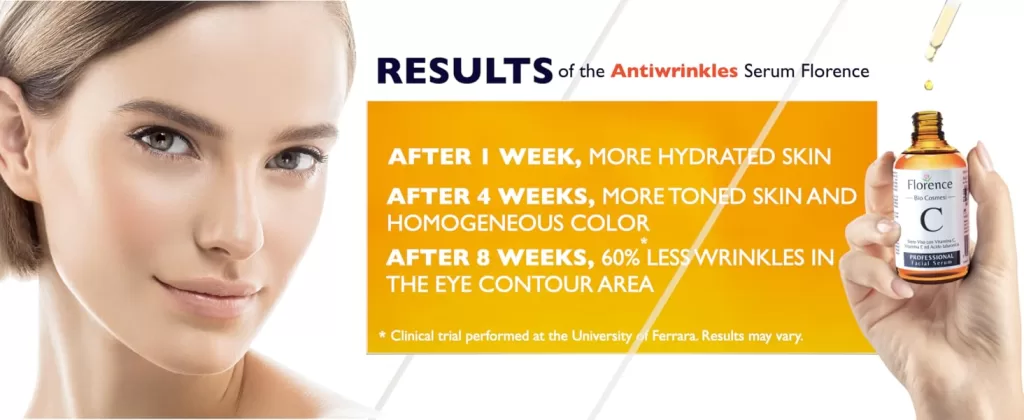
Sunscreen: Essential for Skin Protection
Sunscreen is a non-negotiable step in any skincare routine. It protects the skin from harmful UV rays, which can cause premature aging, hyperpigmentation, and even skin cancer. A good sunscreen should be lightweight, non-greasy, and suitable for daily use.
Skin Type Considerations
- Oily Skin
- What to Look For: A matte, oil-free sunscreen that won’t clog pores or leave a shiny finish.
- Recommended Ingredients:
- Zinc Oxide: Provides broad-spectrum protection without irritation.
- Silica: Helps control shine and absorb excess oil.
- Product Type: Gel or lightweight fluid sunscreens.
- Dry Skin
- What to Look For: A hydrating sunscreen with added moisturizing benefits.
- Recommended Ingredients:
- Hyaluronic Acid: Adds hydration.
- Ceramides: Strengthen the skin barrier.
- Product Type: Cream or lotion sunscreens.
- Combination Skin
- What to Look For: A lightweight, non-greasy sunscreen that balances hydration and oil control.
- Recommended Ingredients:
- Titanium Dioxide: Gentle and effective for sensitive areas.
- Antioxidants: Provide additional protection against free radicals.
- Product Type: Light lotions or gels.
- Sensitive Skin
- What to Look For: A mineral-based sunscreen with soothing ingredients.
- Recommended Ingredients:
- Zinc Oxide: Gentle and non-irritating.
- Aloe Vera: Calms and hydrates the skin.
- Product Type: Fragrance-free, mineral-based sunscreens.
Key Ingredients and Their Benefits
- Zinc Oxide
- Benefits: Provides broad-spectrum protection and is gentle on sensitive skin.
- Best For: All skin types, especially sensitive skin.
- Titanium Dioxide
- Benefits: Offers UV protection and is less likely to cause irritation.
- Best For: Sensitive and acne-prone skin.
- Antioxidants (e.g., Vitamin C, Vitamin E)
- Benefits: Enhance sun protection and combat free radical damage.
- Best For: All skin types.
General Advice for Choosing a Sunscreen
- Broad-Spectrum: Protects against both UVA (aging) and UVB (burning) rays.
- SPF 30 or Higher: Provides adequate protection for daily use.
- Water-Resistant: Ideal for outdoor activities or sweating.
- Non-Comedogenic: Prevents clogged pores and breakouts.
- Lightweight Texture: Ensures comfortable wear under makeup.
Sunscreen Recommendations
- Oily Skin: EltaMD UV Clear Broad-Spectrum SPF 46 (with niacinamide and zinc oxide).
- Dry Skin: CeraVe Hydrating Mineral Sunscreen SPF 30 (with ceramides and hyaluronic acid).
- Combination Skin: Supergoop! Unseen Sunscreen SPF 40 (weightless and invisible).
- Sensitive Skin: La Roche-Posay Toleriane Double Repair Face Moisturizer with SPF 30.
Final Thoughts
A lightweight moisturizer and sunscreen are essential for maintaining healthy, protected skin. By choosing products tailored to your skin type and concerns, you can ensure your skin stays hydrated, balanced, and shielded from environmental damage. Remember to apply sunscreen every day, even when indoors or on cloudy days, as UV rays can penetrate windows and clouds. With the right products, you’ll be well on your way to achieving a radiant, healthy complexion.
Over-the-Counter Treatments for Adult Acne
Many OTC treatments contain active ingredients like:
- Salicylic acid: Exfoliates and unclogs pores.
- Benzoyl peroxide: Kills acne-causing bacteria.
- Retinoids: Speeds up cell turnover to prevent clogged pores.
Professional Treatments for Stubborn Acne
If over-the-counter products don’t work, dermatologists can provide advanced treatments, such as:
- Prescription retinoids: Stronger than OTC retinoids, they help with severe acne.
- Hormonal therapy: Birth control pills or spironolactone can regulate hormone-related acne.
- Chemical peels and laser therapy: Reduce acne scars and improve skin texture.
- Adult Acne Solutions
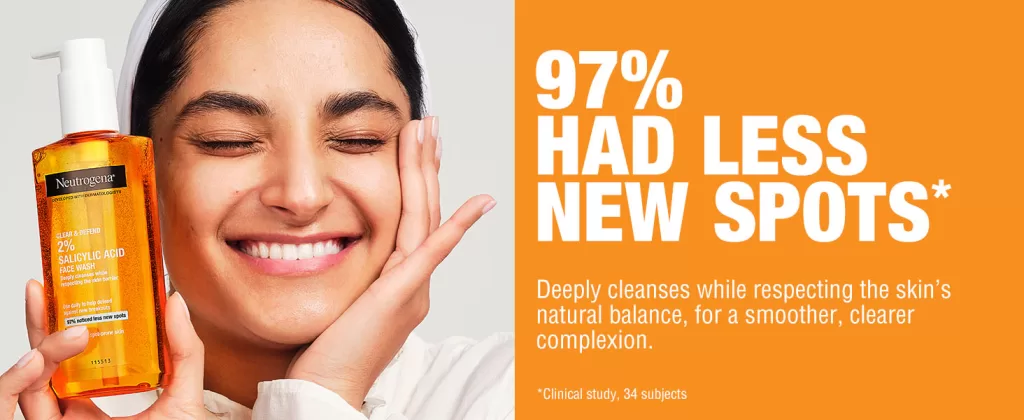
Acne Scars: Causes and How to Get Rid of Them
Acne scars form when inflamed blemishes damage the deeper layers of the skin, leading to long-term discoloration or textural changes. There are different types of acne scars, including atrophic scars (indented scars like ice pick, boxcar, and rolling scars) and hypertrophic scars (raised scars that result from excess collagen production). The severity of scarring depends on genetics, skin type, and how acne was treated. To reduce or eliminate acne scars, treatments range from topical skincare products to professional dermatological procedures. Chemical peels, microneedling, laser therapy, and dermal fillers can significantly improve skin texture and reduce discoloration.
Will My Acne Scars Go Away? Understanding Scar Types and Treatment Options
Whether acne scars fade completely depends on the type of scarring and the treatments used. Post-inflammatory hyperpigmentation (PIH) and post-inflammatory erythema (PIE), which appear as dark spots or red marks, are not true scars and often fade over time with proper skincare and sun protection. However, deeper atrophic scars (such as icepick, boxcar, or rolling scars) or hypertrophic scars may require professional treatments like microneedling, laser resurfacing, chemical peels, or dermal fillers for noticeable improvement. While some scars may not disappear entirely, consistent treatment and care can significantly reduce their appearance, improve skin texture, and restore confidence over time. Early intervention and a tailored approach are key to achieving the best results.
What Products Can I Use to Fade Acne Scars?
Several over-the-counter and prescription products can help lighten acne scars and improve skin texture:
- Vitamin C serums: Brightens dark spots and evens skin tone.
- Retinoids (retinol, tretinoin, adapalene): Boosts collagen production and accelerates cell turnover to fade scars.
- AHAs & BHAs (glycolic acid, lactic acid, salicylic acid): Exfoliates skin to improve texture and reduce discoloration.
- Niacinamide: Reduces redness, inflammation, and pigmentation.
- Hydroquinone or Kojic Acid: Lightens hyperpigmentation when used under dermatologist supervision.
- Sunscreen (SPF 30 or higher): Prevents dark spots from worsening by protecting skin from UV damage.
For deeper scars, dermatologist-recommended treatments like chemical peels, laser resurfacing, or microneedling provide more effective long-term results. The key to improving acne scars is consistency, patience, and a tailored skincare routine suited to your skin type.
Preventing Adult Acne
1. Managing Stress and Sleep Patterns
Stress management techniques like meditation, yoga, and regular exercise can help reduce acne flare-ups. Prioritizing sleep ensures proper skin cell regeneration.
2. Maintaining a Skin-Friendly Diet
Eating a diet rich in whole foods, vegetables, and healthy fats while reducing dairy and processed sugars can improve skin health. Staying hydrated is also crucial for clear skin.
3. Being Consistent with Skincare
Skipping steps in your skincare routine can lead to clogged pores and breakouts. Stick to a consistent morning and night routine tailored to your skin type.
Adult Acne Solutions
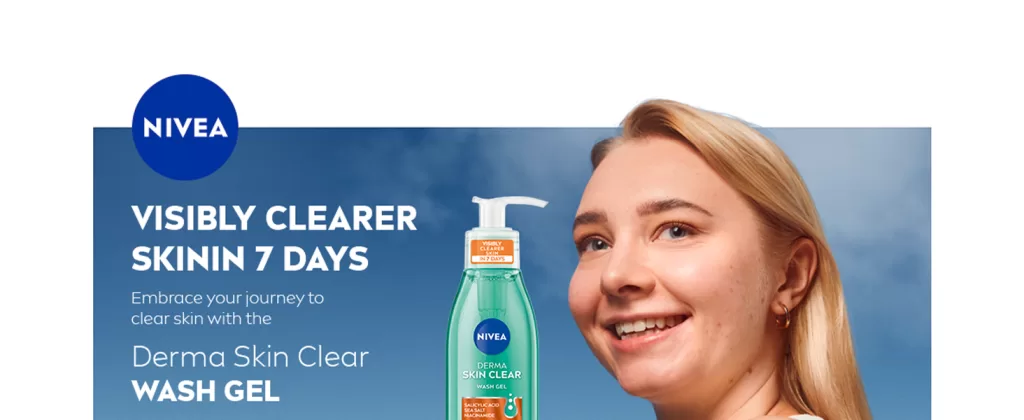
When to See a Dermatologist: Considering Medication for Acne
Acne is a common skin condition that can often be managed with lifestyle changes, over-the-counter products, and a consistent skincare routine. However, there are certain situations where these measures may not be enough, and it’s time to consult a dermatologist for more advanced treatment options, including systemic medications. Here are specific criteria that indicate the need for professional intervention and potential systemic treatment:
1. Duration of Acne
- When to Consider Medication: If acne persists for more than 2-3 months despite consistent use of over-the-counter treatments and skincare adjustments, it may be time to seek professional help. Persistent acne that doesn’t improve over time often requires a more targeted approach, as it could indicate a deeper issue, such as hormonal imbalances or chronic inflammation.
2. Severity of Acne
- When to Consider Medication: If your acne is moderate to severe, causing painful, deep cysts, nodules, or widespread inflammation, it’s a sign that systemic treatment may be necessary. Severe acne can lead to permanent scarring, hyperpigmentation, or psychological distress, making early intervention critical.
- Signs of Severe Acne:
- Large, painful bumps under the skin (cystic acne).
- Acne that covers a significant portion of the face, chest, or back.
- Acne that is causing scarring or dark spots.
3. Ineffectiveness of Topical Treatments
- When to Consider Medication: If you’ve tried multiple topical treatments (such as benzoyl peroxide, salicylic acid, retinoids, or antibiotics) for several weeks without noticeable improvement, it may indicate that your acne requires a stronger, systemic approach. Topical treatments are often effective for mild to moderate acne but may not penetrate deeply enough to address severe or stubborn cases.
4. Emotional or Psychological Impact
- When to Consider Medication: Acne can significantly impact self-esteem, confidence, and mental health. If your acne is causing emotional distress, anxiety, or depression, it’s important to seek help from a dermatologist. They can provide treatments that not only address the physical symptoms but also improve your overall quality of life.
5. Hormonal Acne
- When to Consider Medication: If your acne is linked to hormonal fluctuations (e.g., breakouts around the jawline, chin, or during menstrual cycles), a dermatologist may recommend hormonal treatments such as oral contraceptives or anti-androgen medications. These treatments can help regulate hormones and reduce acne caused by imbalances.
6. Risk of Scarring
- When to Consider Medication: If your acne is causing scarring or you notice early signs of scarring (such as pitted or raised skin), it’s crucial to act quickly. Scarring is often permanent and harder to treat than active acne. A dermatologist can prescribe medications like oral isotretinoin (Accutane) to prevent further damage and promote healing.
7. Family History of Severe Acne
- When to Consider Medication: If you have a family history of severe or cystic acne, you may be genetically predisposed to developing similar symptoms. In such cases, early intervention with systemic treatments can help prevent the condition from worsening.
8. Acne in Unusual Areas
- When to Consider Medication: If you experience acne in areas like the back, chest, or shoulders, especially if it’s widespread or severe, it may require systemic treatment. These areas are harder to treat with topical products alone and often respond better to oral medications.
9. Recurring Acne After Treatment
- When to Consider Medication: If your acne clears up temporarily but keeps coming back despite treatment, it may be time to explore systemic options. Recurring acne often indicates an underlying issue that needs to be addressed with a more comprehensive treatment plan.
What to Expect from a Dermatologist
When you visit a dermatologist, they will evaluate your skin, discuss your medical history, and determine the best course of action. They may recommend:
- Oral Antibiotics: To reduce inflammation and bacteria.
- Hormonal Therapies: Such as birth control pills or spironolactone.
- Isotretinoin (Accutane): For severe, treatment-resistant acne.
- Combination Therapies: A mix of topical and systemic treatments for optimal results.
Conclusion
If your acne meets any of the above criteria, don’t hesitate to consult a dermatologist. Early intervention can prevent long-term damage, improve your skin’s health, and boost your confidence. Remember, acne is a medical condition, and effective treatments are available to help you achieve clear, healthy skin.
FAQs Adult Acne Solutions
1. Can adults get acne even if they never had it as a teenager?
Yes, adult acne can develop due to hormonal changes, stress, or lifestyle factors, even if someone had clear skin during their teenage years.
2. Is adult acne different from teenage acne?
Yes, adult acne is often more inflammatory and appears on the lower face, jawline, and chin, whereas teenage acne is usually on the forehead and T-zone.
3. Will drinking more water help clear my acne?
While hydration is important for skin health, drinking water alone won’t cure acne. However, it helps maintain overall skin function and reduces inflammation.
4. Can stress really cause acne?
Yes, stress increases cortisol levels, which triggers excess oil production and inflammation, leading to acne breakouts.
5. What are the best treatments for adult acne?
A combination of a gentle skincare routine, topical treatments like salicylic acid or retinoids, and professional treatments like hormonal therapy or chemical peels can be effective.
Related Article:
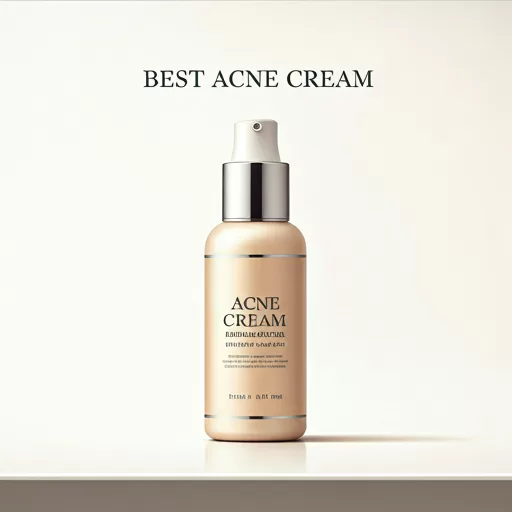
Alexa, What’s the Best Acne Cream for My Skin?

Explore more articles like this @ Where And How Resources
If you found this article helpful, don’t forget to share it with your friends and followers!

